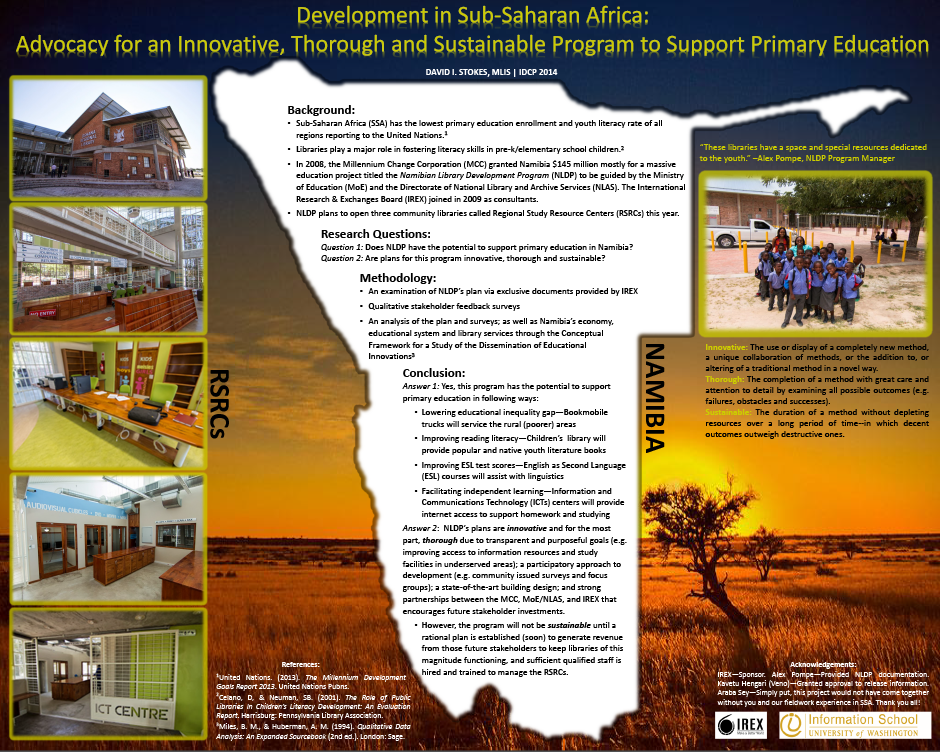Development in Sub-Saharan Africa: Advocacy for an Innovative, Thorough and Sustainable Program to Support Primary Education

Sub-Saharan Africa (SSA) has the lowest primary education enrollment and youth literacy rate of all the regions reported to the United Nations. In fact, more than half of the world’s out-of-school children live in SSA and one out every four children who actually enter primary education will leave before completing the last grade (United Nations 2013).
This study examines the design and planning stages of a project known as the Namibian Library Development Program (NLDP) to identify if it has the potential to support primary education in SSA. It uses documentation provided by consultants to the project as well as literature, multimedia, and empirical data to examine relationships between stakeholders and possibilities for school improvements. Ultimately, the study illustrates how NLDP’s innovative and thorough approach could assist primary education in SSA but only if issues surrounding its sustainability are accounted for.
David I. Stokes
MLIS
